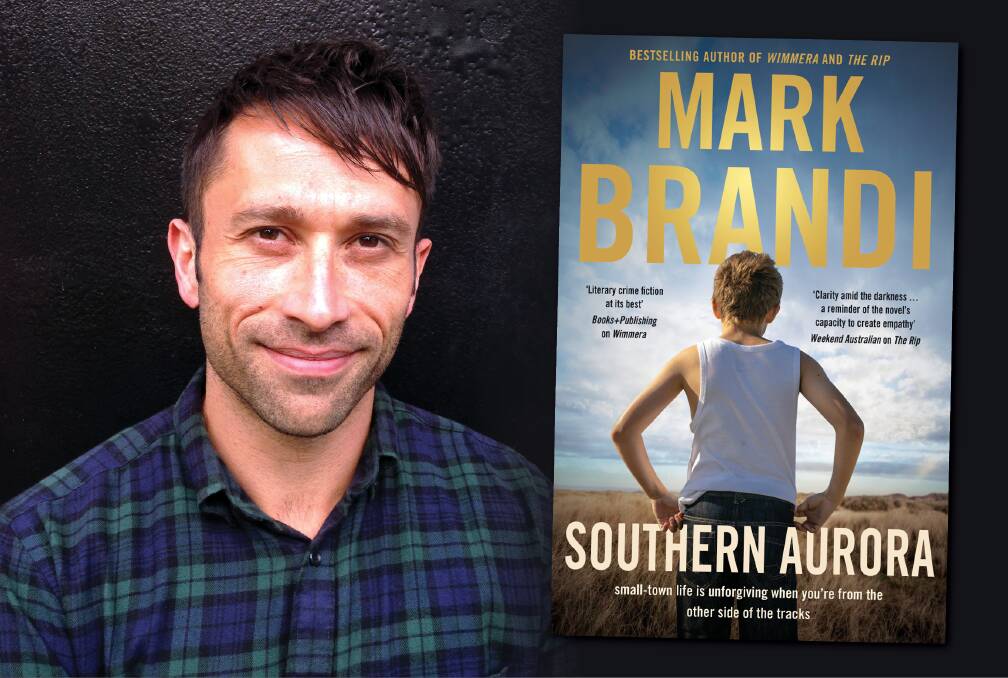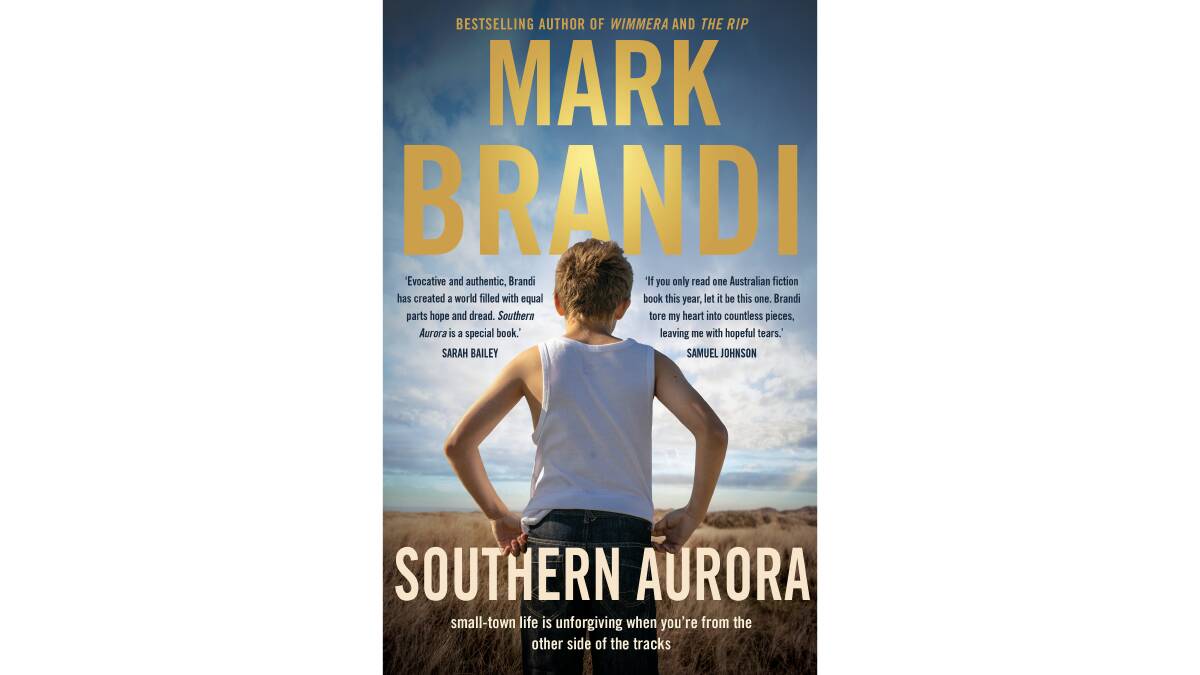
There's a line in Mark Brandi's newest book in which Jimmy, the protagonist, explains that he prefers cricket over footy because at least when you're fielding "you can look like you're part of something even when you're not".
Subscribe now for unlimited access.
or signup to continue reading
Jimmy's in Grade 5, growing up in the mid-1980s, in the fictional small town of Mittagunda in rural NSW. Living on the poorest street in town, with a single mum, Jimmy's also a bit of an outsider - a quality he has in common with all the narrators of Brandi's novels.
Speaking about Southern Aurora (out June 28), Brandi explains his preference of writing about people at "the margins of society".
"When we were growing up, my parents owned the pub, and we'd get people coming in from all walks of life," he says.
"I just loved that you'd get to meet people you wouldn't ever speak to otherwise. People who had just got out of jail, or someone who had problems with drugs, or maybe they were unemployed. In my reading, and also in the movies I watch, I always barrack for the underdog."
Jimmy is certainly an "underdog", with an older brother in jail and a younger brother at Special School (with an unnamed syndrome). The odds are stacked against them, but they are fighting for a better life.
"I like people who are able to overcome their circumstances - or even if they don't, they're striving for it, although structures may prevent them from getting where they want to," Brandi says. "And I think that is true of Jimmy and his family's predicament in Southern Aurora. They're in a fairly precarious situation."
The situation leads Jimmy's family - in particular, his mum, Nicki - to "become dependent on a fairly sinister character", as Brandi puts it.

Sinister characters are also a feature of Brandi's novels, which have garnered praise for their understated dread and tense atmosphere. His first novel, Wimmera, won the Debut Dagger from the Crime Writers' Association, and The Rip and The Others were also long- and short-listed for various crime writing awards.
Brandi is drawn to write about the darker side of life, which he says is partly informed by his professional background working in the justice system, as well as having older brothers involved in policing.
"I've heard a lot of darker stories about humanity, throughout my life," he says. "Those things get into your psyche and you kind of try to make sense of them, I think, through your writing."
The unease and foreboding in Southern Aurora also emanates from the small-town setting. Small towns have been a staple of Australian crime fiction at least since Peter Temple took Jo Cashin to Port Munro. Brandi captures what makes small towns so convenient to the crime writer.
"One of the things in small towns - which I experienced growing up - was a kind of claustrophobia," he says.
"There is this sense that everyone knows who you are and who your family is, and they will make assumptions about you on that basis. That can be a very hard thing to break free from."
The oppressiveness of a wild reputation finds its way into Southern Aurora in the figure of Jimmy's older brother, Mick. He's frequently in trouble with the police, and spends most of the novel in jail. But Brandi is a master of nuance, and Mick isn't all bad - he's also the strong, caring, stubborn older brother who Jimmy looks up to. And small towns are also a mixed blessing.
"I loved growing up in a country town," Brandi says. "Particularly in the 1980s, you had this great sense of freedom. You could go out the front door in the morning, and your parents didn't care what you were doing as long as you were back by nighttime."
The themes of childhood, claustrophobia, and breaking free make Southern Aurora more similar to Wimmera, Brandi's first novel, than the two intervening books.
"I felt very motivated to write more about that intensity of childhood experience, because I think those childhood friendships and relationships with older siblings are so formative and crucial," he says.
"Most of us don't have relationships with our friends like that into adulthood. I remember being a kid, and your mates are the whole world to you. I look back on it really fondly and it's really vivid to me, so I felt drawn to go back and write about [childhood] again."
Children are also the perfect outsiders. Jimmy likes to look like he's part of something when he's really not, but the opposite is also true. He may seem to be excluded from the troubled world of adults, but at the same time he observes, understands, and challenges just enough to reveal that there's more to this story than "just" a kid growing up on the wrong side of the tracks.
Fans of Brandi's writing will recognise the undercurrent of darkness; the hints at grudges, illness, and - perhaps - murder. Southern Aurora is marketed as crime, after all.

